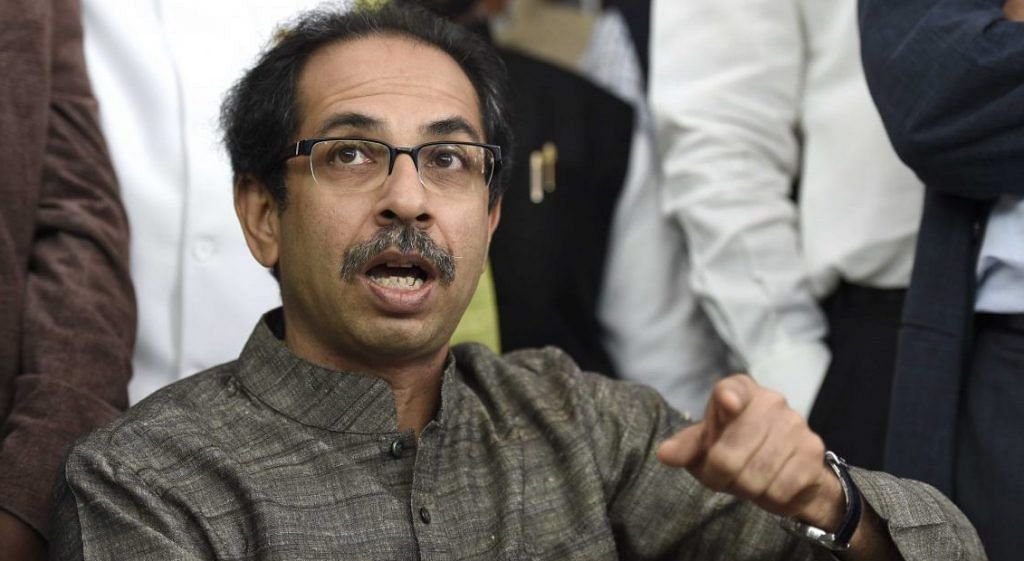Despite consistent attempts, Sena has not been successful in expanding beyond Maharashtra even as its alliance with the BJP is going through a rough patch.
Mumbai: NDA partner Shiv Sena’s decision to go solo in Gujarat did not fetch it any dividend with the party ending up with a drab vote share of less than 0.5 per cent in the seats it contested in the assembly polls.
Despite consistent attempts over the past three years, the Sena has not been successful in expanding beyond Maharashtra even as its alliance with the BJP in the state is going through a rough patch.
The Shiv Sena fielded candidates in 42 of the 182 constituencies, polling 33,893 votes where the total number of votes cast stood at 73.1 lakh, according to Election Commission data.
The party’s ‘best’ performance was in Surat’s Limbayat where it polled 4,075 votes in a constituency that the BJP won polling 93,585 votes. It faced its worst drubbing in Matar in the Kheda district where it got only 203 votes.
Overall, 31 candidates ended up with less than 1,000 votes, of which 20 polled less than 500 votes despite the local cadre’s efforts to project the Sena as an outfit for the Hindus and an alternative to the BJP.
Although neither Sena president Uddhav Thackeray nor his son Aaditya personally campaigned in Gujarat, the party sent several senior leaders such as Arvind Sawant, MP from Mumbai South, and Maharashtra ministers Gulabrao Patel and Dadaji Bhuse for canvassing on the ground.
“The Shiv Sena was not completely prepared for this election. We took a decision to contest at the eleventh hour because our people in Gujarat wanted the party to field its candidates,” said Rajul Patel, a Mumbai-based Sena functionary and the party’s coordinator for Gujarat.
She alleged that although the party put its best foot forward despite a paucity of time, the BJP sabotaged its efforts by tampering with EVMs. “There are a number of seats where we know for sure Shiv Sena would have had a better score,” Patel said.
“In Surat’s Choriyasi constituency, our candidate Arvind Rajput got only two votes in one of the rounds in an area where we know for sure at least 16 of his own family members voted for him. What is this, if not fraud,” she asked.
Until recently, the Shiv Sena had been mostly electorally inactive outside Maharashtra because of its unofficial understanding with the BJP that while the latter expands across the country, the Sena retains its upper hand in the alliance in its home turf of Maharashtra.
Now, with the BJP aggressively growing within the state, the Sena too has been looking to strengthen itself in other states.
However, besides a slight sliver of victory when its candidate Dipesh Yadav won a seat in the recent Allahabad civic polls, the party has had a string of defeats, recording dismal vote shares in the assembly elections of Goa, Uttar Pradesh, Uttarakhand and Punjab before Gujarat.
In the past too, the Sena’s performance was lacklustre in Gujarat, which has a sizeable Marathi-speaking population in certain pockets. In 1998, when the BJP’s winning streak in Gujarat began, the Sena contested in five seats, losing all with a vote share of 0.47 per cent.
Similarly in 2002, the party fought and suffered a drubbing in nine constituencies. In 2007 again, the Sena contested the polls, this time fielding candidates in 38 constituencies, but ended with a crushing defeat and 0.99 per cent of the vote share.
In 2012, Uddhav Thackeray declared that his party would not contest the election as he did not want to divide pro-Hindutva votes.
“The Shiv Sena just has popular appeal outside Maharashtra and not necessarily political significance,” said political analyst Surendra Jondhale.
“It is too strongly associated with its ‘sons of the soil’ stand in Maharashtra and people have not forgotten the party’s various campaigns against Gujaratis and north Indians in its home state,” he added.
